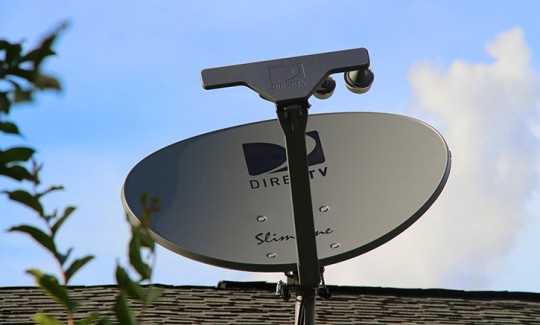Appeals Court Rules Against High Tax Rate For Satellite TV
June 12, 2015
An appeals court Thursday said a Florida law is unconstitutional because it imposes a higher tax rate on satellite-television companies than on their cable-TV competitors.
The 1st District Court of Appeal, in a 2-1 ruling, also ordered a lower court to determine how much money should be refunded to satellite-TV companies. The ruling overturned a decision by a Leon County circuit judge, who found the differing rates in the state’s communications-services tax were valid.
The Florida Department of Revenue quickly vowed to appeal Thursday’s ruling.
“The department has reviewed this opinion and plans to challenge the ruling,” department Executive Director Marshall Stranburg said in a prepared statement. “The court’s opinion is contrary to decisions on this issue in numerous state and federal courts and misconstrues the effect of the communications services tax.”
The case stems from the state communications-services tax being set at 6.65 percent for cable TV and 10.8 percent for satellite service. The appeals court found that the tax is discriminatory and violates the Commerce Clause of the U.S. Constitution.
“Here, the sales tax portion of the CST (communications-services tax) is discriminatory in effect because it affects similarly-situated entities, cable and satellite companies, by imposing a disproportionate burden on satellite service and conferring an advantage upon cable services, which use in-state infrastructure,” said the majority opinion, written by Judge Clay Roberts and joined by Judge Ronald Swanson.
A key part of the case involved a question about whether the tax law discriminates against out-of-state satellite companies when compared with cable companies that have large amounts of infrastructure in Florida. Such discrimination can violate what is known as the “dormant” Commerce Clause.
In a dissenting opinion, appeals-court Judge Simone Marstiller disputed that the law violated the dormant Commerce Clause.
“Inasmuch as the cable providers and the satellite providers both have human and physical assets in Florida which they use to provide services to their customers, they both have significant in-state economic interests,” Marstiller wrote. “I fail to see how, under these facts, the cable providers have local economic interests, but the satellite providers do not. And I find nothing in dormant Commerce Clause jurisprudence that would justify invalidating Florida’s CST based on one group’s comparatively greater economic investment in the state where both groups have economic investment here.”
The potential ramifications of the ruling were not immediately clear Thursday, as the appeals court sent the case back to circuit court to determine a refund amount.
The ruling came as state lawmakers negotiate a budget for the fiscal year that starts July 1 — and, somewhat ironically, are discussing a reduction in the communications-services tax.
House Speaker Steve Crisafulli, R-Merritt Island, said Thursday afternoon he was waiting to get a briefing on the potential ramifications of the ruling. But he noted that an appeal would likely delay its effects.
by Jim Saunders, The News Service of Florida
NorthEscambia.com photos, click to enlarge.




Comments